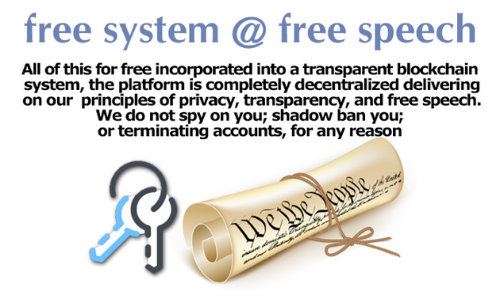


In a digital age dominated by technological advancements, society is witnessing a transformative shift— a migration towards decentralization propelled by the innovative power of blockchain technology. This paradigmatic change marks a departure from the traditional centralized control exercised by big tech giants, offering a promising alternative that prioritizes transparency, security, and autonomy.
The Decentralization Revolution
Centralized structures, emblematic of the tech industry for decades, have been the cornerstone of many digital services and platforms. However, concerns surrounding data privacy, censorship, and monopolistic control have fuelled a growing disillusionment among users. Enter blockchain technology, a revolutionary concept that underpins cryptocurrencies like Bitcoin and Ethereum.
Blockchain operates as a decentralized ledger, distributed across a network of computers, creating a transparent and immutable record of transactions. This technology's decentralized nature removes the need for intermediaries, fostering a peer-to-peer network where users can interact directly without reliance on a central authority.
Shifting Dynamics: Big Tech vs. Decentralization
Big tech companies have long held sway over vast amounts of user data, often leveraging it for targeted advertising, while retaining centralized control over platforms and content moderation. However, concerns over data misuse, algorithmic biases, and censorship have sparked a reevaluation of centralized models.
The allure of decentralized platforms lies in their promise of user empowerment. Social media networks, for instance, built on blockchain principles, offer users ownership and control over their data, fostering an environment where content moderation is community-driven, rather than controlled by a central entity.
Decentralized Finance (DeFi) and Beyond
Beyond social platforms, the rise of decentralized finance (DeFi) exemplifies blockchain's transformative potential. DeFi applications offer a decentralized alternative to traditional financial systems, enabling peer-to-peer lending, borrowing, and trading without intermediaries. The efficiency, transparency, and accessibility of DeFi have captured the interest of investors and users seeking financial inclusion.
Challenges on the Road to Decentralization
While the decentralized movement holds promise, it faces several challenges. Scalability, energy consumption (in the case of certain blockchain protocols), regulatory hurdles, and user adoption barriers remain significant obstacles to mainstream integration. Additionally, the need for robust governance frameworks to address issues like fraudulent activities or disputes is crucial for sustaining decentralized ecosystems.
The Future Landscape: Embracing the Decentralized Era
The shift towards decentralization signifies a pivotal moment in technological evolution. As individuals become more conscious of their digital footprint and demand greater control over their data, blockchain technology stands poised to redefine the digital landscape.
However, the journey to widespread adoption requires collaboration between innovators, policymakers, and the public to navigate challenges and build user-friendly decentralized solutions. With continued advancements in blockchain technology, we may witness a future where decentralized principles reconfigure various industries, offering more equitable, transparent, and user-centric alternatives to centralized control.
Conclusion
The ongoing transition towards decentralization signals a departure from the status quo, challenging the dominance of big tech in shaping the digital world. Blockchain's decentralized architecture offers a compelling alternative, promising increased privacy, transparency, and user autonomy.
As this transformation unfolds, embracing decentralized systems will not only redefine technological landscapes but also empower individuals, fostering a more inclusive and democratic digital future. The shift towards decentralization represents a beacon of hope, steering us towards a more equitable and transparent era in the digital realm.


Markethive stands at the forefront of a groundbreaking movement, revolutionizing inbound marketing and social networking through its embrace of decentralized blockchain technology. Unlike conventional platforms, Markethive prioritizes autonomy, security, privacy, and free speech—core principles enabled by blockchain—to empower marketers and users in unprecedented ways.
Embracing Decentralization with Blockchain
Markethive's integration of blockchain technology redefines the landscape of inbound marketing and social networking. By leveraging blockchain's decentralized architecture, Markethive eradicates the centralized control wielded by traditional platforms, ensuring user autonomy and data sovereignty.
Empowering Marketers with Networking and Tools
Markethive's platform is a haven for marketers, offering an extensive suite of inbound marketing tools and force multipliers. The platform's decentralized nature fosters a community-driven environment where marketers can collaborate, share insights, and amplify their promotional efforts.
Autonomy, Security, and Privacy
Crucially, Markethive upholds principles of autonomy, security, and privacy. Unlike centralized platforms that monetize user data, Markethive prioritizes user sovereignty, enabling individuals to retain ownership of their data and exercise full control over its use.
Free Speech and Community Engagement
The platform champions free speech, ensuring an inclusive environment where users can express themselves without fear of censorship. This commitment to free speech fosters vibrant community engagement, encouraging diverse perspectives and authentic interactions.
Comprehensive Suite of Inbound Marketing Tools
Markethive's arsenal of tools empowers marketers to elevate their promotional strategies, including Blogging, Email Broadcast, Capture Pages, Capture Widgets, Storefronts (business pages), Groups, Campaign Manager, Advertising, Co-op, Tiny URL, Website Rotator, Advertising Vendors - the list goes on:
Blogging Platform
The blogging platform allows users to create and publish content, leveraging blockchain's immutability to ensure content integrity. Marketers can share valuable insights, establish thought leadership, and engage with their audience through high-quality, customizable blogs.
Email Marketing System
Markethive's email marketing system provides a robust communication channel. Marketers can craft targeted campaigns, nurture leads, and build lasting relationships with their audience through personalized and automated email sequences.
Capture Page System
The capture page system enables the creation of captivating landing pages. Marketers can design visually appealing pages optimized for lead generation, driving conversions and expanding their customer base.
Advancing the Decentralized Future
Markethive's commitment to decentralization extends beyond tools; it embodies a vision for a future where individuals wield control over their digital presence. By amalgamating blockchain technology with a complete working wallet, a utility token called HiveCoin (HVC), inbound marketing and social networking, Markethive paves the way for a paradigm shift in how we engage, communicate, and conduct business online.
In summary, Markethive stands as a beacon of decentralized innovation in the realm of inbound marketing and social networking. By championing autonomy, security, privacy, and free speech while offering a comprehensive suite of tools, Markethive empowers marketers to thrive in a collaborative, user-centric environment—an embodiment of the transformative potential of decentralized blockchain technology.

Disclaimer: This article is provided for informational purposes only. It is not offered or intended to be used as legal, tax, investment, financial, or other advice.
Featured Image - Pixabay
